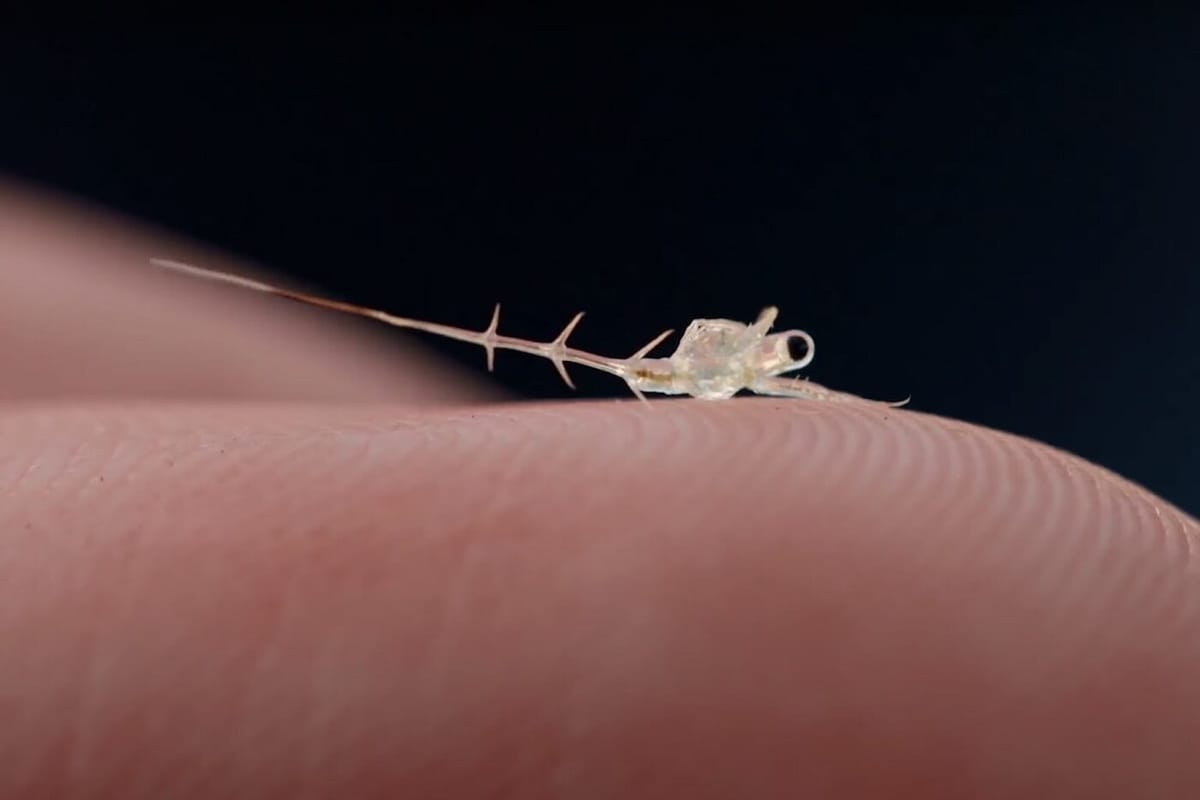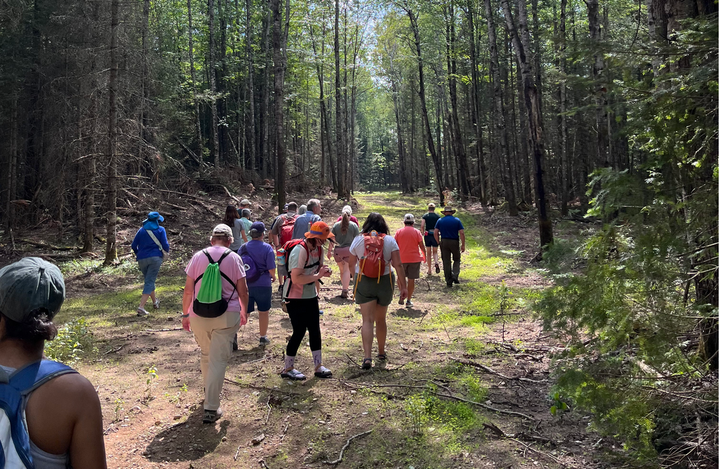Free Boat Washes Start Friday to Prevent Spread of Spiny Water Flea

Vilas County Land and Water Department will hold a series of free boat washes at popular public landings this summer to help prevent the spread of aquatic invasive species such as the spiny water flea.
The locations of these cleanings have been selected due to their proximity to three Vilas County lakes that are known to have spiny water fleas in an effort to keep them out of the surrounding waterbodies. Other factors considered when choosing the locations included the ability for wash water to infiltrate vs. run off into surface waters, boater traffic rates, and space available at the launch area.
According to the Wisconsin DNR, spiny water fleas entered the Great Lakes in ship ballast water from Europe in the 1980s. Only about ¼- to ½-inch in length, individual water fleas may go unnoticed, however, the species tend to gather in masses on fishing lines and downrigger cables, so anglers may be the first to discover a new infestation.
Spiny and water fleas are predators — they eat smaller zooplankton (planktonic animals), which puts them in direct competition with juvenile fish for food. Young fish have trouble eating these water fleas due to their long, spiny tails. They produce rapidly through parthenogenesis, commonly known as asexual reproduction, which means that no males are required and populations can explode in number, the DNR said.
Once these spiny water fleas are introduced into a waterbody there is no effective strategy to control the invasive species, which is why preventing their infestations is so important.
The boat decontamination program is operated in partnership with UW-Oshkosh to offer voluntary washes using hot pressure washing. Target lakes include Big Muskellunge Lake, which is located 3 to 12 miles away from the three Vilas lakes that are already known to contain the spiny water flea: Plum Lake, verified in 2019; Star Lake, verified in 2013; and Trout Lake, verified in 2014. In Vilas County, spiny water fleas also were discovered in Stormy Lake near Conover in 2007, and Ike Walton Lake in 2015.
Starting this Friday, June 20, from 12:30 to 4:30 p.m., volunteers will be at the public boat launch on Big Muskellunge Lake, located off Highway N near Sayner, offering this free service. They will also be out Saturday, June 21, from 8 a.m. to noon at Star Lake and 12:30 to 4:30 p.m. at Big Muskellunge.
Additional summer dates and locations will be held: July 2 and 5 at Trout Lake from 12:30 to 4:30 p.m., July 6 at Plum Lake from 8 a.m. to noon and Trout Lake from 12:30 to 4:30 p.m., July 19 at Star Lake from 8 a.m. to noon and Big Muskellunge from 12:30 to 4:30 p.m., and July 20 at Plum Lake from 8 a.m. to noon and Star Lake from 12:30 to 4:30 p.m.
On Aug. 1, volunteers will visit Trout Lake from 8 a.m. to noon before heading to Big Muskellunge from 12:30 to 4:30 p.m.; Aug. 2, Big Muskellunge from 8 a.m. to noon and Star Lake from 12:30 to 4:30 p.m.; Aug. 5, Big Muskellunge, 8 a.m. to noon and Trout Lake 12:30 to 4:30 p.m.; Aug. 16, Big Muskellunge from 8 a.m. to noon and Plum Lake, 12:30 to 4:30 p.m.; Aug. 17, Plum Lake from 8 a.m. to noon and Big Muskellunge, 12:30 to 4:30 p.m.; and Aug. 30 and 31 at Trout Lake from 12:30 to 4:30 p.m. both days.
The UW-Oshkosh Boat Decontamination Program in Vilas County has been in place since 2018. For more information or to volunteer to be a part of the program, contact Cathy Higley at Vilas County Land and Water at 715-479-3738.


